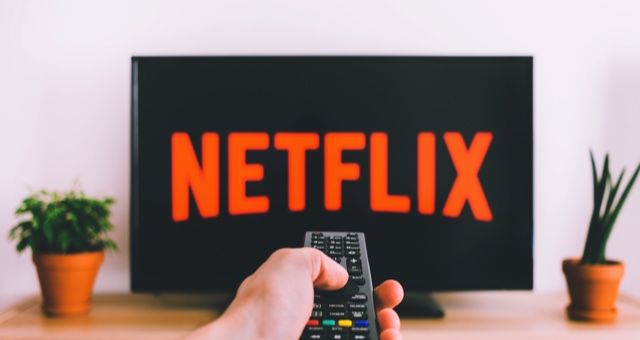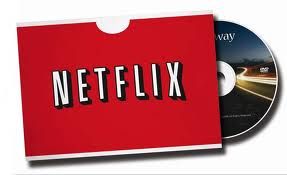
Dear Publishers: Please don’t pull a “Netflix”

Unless you’ve been living under a rock, you’ve probably been following the ups and downs (mostly downs) of Netflix’s fall from grace, beginning with the announcement that it was increasing prices. That price increase still stands, even though the company is reneging on the company split. I knew when Netflix upped the price that it was a long time coming, that the service it provided to the number of customers it served wouldn’t be quite so cheap as the studios figured out how much moola they were missing out on by not renegotiating their streaming contracts. So I defended the price increase. When the proverbial poo hit the fan on Monday in what is hopefully the end of the Netflix saga, it got me thinking about what this hoopla could teach the publishing industry about its business models in relation to ebooks.
Just as I defended the Netflix price increase, I can defend ebooks that cost the same as paperbacks. Just because there is no “hard” copy doesn’t mean the same amount of work isn’t put into writing, editing, formatting, and producing the text (not to mention the price of intellectual property). So I understand that part. But publishers could learn a lot from the Netflix debacle in terms of listening to their customers and doing their best to give them what they want. Here are a few bullet points (because I think better in bullet):
- The Netflix Bundle: Just as Netflix was successful because it offers both DVDs and streaming, publishers should think about the benefits of bundling their services. For example, if a customer buys a hardcover, include a code inside the book where that person can download the ebook for a discounted price. Or offer a hardcover slightly cheaper for those that don’t want the ebook option. The ebook would still be available as a standalone purchase, but would also be available as part of a package. The bundle works in many different businesses – why not this one?
- Ownership Wins: One of the best parts of owning a physical book is the share-ability. Yes, some ereaders allow for lending, but only for two weeks in most cases. But I can’t transfer my copy of a book to someone else, the way I can permanently pass along my actual book to someone else. It would be great if publishers (or booksellers, for that matter) allowed for a limited number of book transfers. Some of the most successful books in recent history have readerships well beyond what’s reflected in the number of books sold. For example, I read a copy of The Kite Runner that someone had given to me after they’d read it. That I didn’t buy my copy doesn’t mean I didn’t recommend it to dozens of other people. But I might not have read it in the first place had I been forced to buy my own copy. This is part of the system of “word of mouth” that publishers are always definitely trying to capture – don’t make it harder on yourselves to start that momentum.
- Be Reasonable: Netflix lost a ton of customers and their stock plummeted because it split its pricing and bumped up the total cost of streaming + DVD subscription. Even though I’ve discussed the bundled option, you should be aware of the fact that consumers have certain expectations of the price of ebooks. If the ebook is more than the “hard” copy – hardcover or paperback – people won’t buy it. Plain and simple. If you want someone to buy the ebook over the paperback, give us a reason to – supplemental online content, for example. But if the paperback and the ebook are both available and you’re charging the same for both of them, I’m going with the cheaper option, no matter what. And unfortunately for you, Apple has set the price point of digital commodities at $9.99. Using the same formula isn’t a bad idea though – an actual CD costs more than 10 bucks in the store because of distribution and hard materials. An ebook should be less than a physical book for the same reasons. This is logic book buyers understand. They don’t understand the complicated pricing formula that takes author contracts, digital formatting, etc. into account. This is why Amazon.com reviewers give a book one-star reviews because of it’s price point. They’re trying to tell you something.
I’m not arguing that publishers should cow-tow to their customers and potentially sell books for less than they’re worth. But be transparent about your pricing. I can kind of begin to understand the many moving parts of book pricing, because I attempt to; most people won’t. On the surface it appears as if the publishers either don’t care or don’t understand the frustration of readers – don’t take the “It’s not my job” or “I’m not a fish” attitude, or at least don’t appear to have that attitude. I really do think that most publishers are worried about ebook pricing, so be transparent about it. And the fact that you’re still figuring it out.
(Authors/agents, you’re not off the hook either. In this Netflix scenario, you’re potentially the studios who are trying to scrape every last penny out of streaming service. Don’t be that guy. Don’t give up your e-rights for less than they’re worth, but don’t be money grubbers either. It’s not a good look on you.)
I don’t know if any of this is financially feasible, and I think some of it will take some work on the part of publishers, booksellers, agents, authors and distributors, but the business model for physical books will not work for ebooks. And publishers, you’re heading down the Netflix road, where the model you’re currently using will no longer work and you’ll have to make a drastic shift that will alienate a lot of your customers. So fix it now while you can and avoid becoming a verb like Netflix.
(Any similarities between this article and actual real people is purely coincidental. In other words, I’m not talking about any one person or publisher in particular, so don’t get your panties in a twist.)














